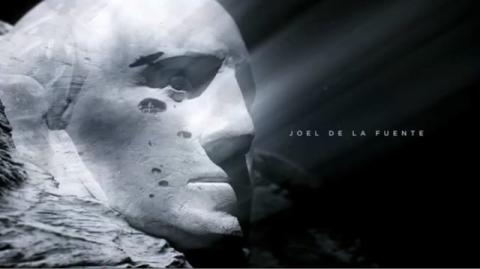inspiration + perspiration = invention :: T. Edison ::
Of all the new pilots released by Amazon's young original studio, none captured my attention more than The Man in the High Castle. Produced by Ridley Scott (of Blade Runner fame) and based on the novel by Hollywood's go-to well of speculative inspiration, Philip Dick, this show may be the first major adaptation of an alternate history work, a genre that most people aren't even aware of.
While I enjoyed the concepts of this world, The Man in the High Castle is no easy work to adapt: it's a book with multiple (often unconnected) stories that meander and weave through various emotional ideas, none of which lead to any clear climax or finale. A movie would have been a tough sell, but various character studies in reaction to an Allied defeat in World War II is just the kind of thing that might work for today's speculative fiction television audience. Amazon and Scott are betting on it, and the finished product is an intriguing, engaging, and promising pilot.
I wish the opening credits clip was available on YouTube clip: it's the best possible trailer that could have been released, though you can see it at io9's review ('ware spoilers there). A haunting rendition of "Edelweiss" played against a backdrop of US landmarks (such as Mount Rushmore and the Statue of Liberty) overlaid with footage of bombs dropping. No words are needed to explain: we lost, and we lost badly.

That kind of soft beauty is present throughout the pilot: muted color schemes of drab, dreary grey on the Nazi-occupied East Coast, light pastels in the Japanese West. Lots of little brushstrokes bring this world to life: adapted uniforms for American Reich officers, Japanese shops and bicycles all along San Francisco. The show drives home how mundane this world is to the characters, whether they're watching a Florida man raised in the Hitler Youth program on a television show or casually noting the hospital's burning of "undesirables." The opening credits' feel of still, quiet horror is always present, making it all the more shocking.
I enjoyed the music as well: a nice quiet blend of West/East that echoes faintly underneath important scenes, such as this one where main character Julianne (Alexa Davalos) and her boyfriend Frank (Rupert Evans) first encounter the idea of an alternate world to their own.
This scene offers a major change in the adaptation, one I think is for the better: instead of a book of alternate history as Dick wrote about, the series chose to have its titular Man in the High Castle produce fake newsreel footage of an Allied victory. While it may be less realistic, it plays far better on screen and allows us to really connect with the awe and fear such an idea inspires among occupied Americans. Whereas I found Julianne cold and enigmatic in the book, the above scene drew me into her emotional world, revealing her personality and determination without resorting to dialogue.
The decision to start with Julianne and Frank together rather than apart (as they are at the start of the book) also gave their characters and potential arcs more heft, giving me reasons to care about their relationship and fates. A third character, Joe Blake (Luke Kleintank) presented a fun twist for newbies and fans alike: I wasn't sure exactly who he matched up with in the book, then how much had been changed, and when the penny dropped it did so perfectly. His journey from the Nazi East provides more of the local color than heart, but I could see him growing into a truly complex, vital component of an ongoing series.
My favorite character of the book, the Japanese minister Tagomi (Cary-Hiroyuki Tagawa), didn't get as much screen time in the pilot as his American counterparts, but the moments he did get were arresting. His story clearly established the cold-war-on-the-cusp-of-turning-hot vibe so prominent in the book. The ante's upped in the pilot: not only is Hitler's health failing, but the Japanese heir to the throne is slated to visit San Francisco soon. I loved his scenes, clearly showing how close to the edge this world really is, and how hard Tagomi's trying to keep order amidst the growing chaos.
I was also impressed by the restraint displayed by the pilot. It focused more on understated horror rather than blood or violence to drive its vision home. Almost every death happened off camera and I don't recall any corpses in plain gory view. There was Nazi brutality and torture, but instead of punishing the audience with the same beatings we got dialogue and character work, such as the following clip of New York Nazis discussing the interrogation of a Resistance fighter.
Such casual disdain is far more chilling than any length of gory beatings could communicate.
Even language was kept to a minimum; there were the requisite F-bombs uncensored by a network (I believe three, if memory serves me rightly), but other vulgarities were actually fewer in number than standard television. Dialogue as a whole was used sparingly and to good effect in the pilot, with the emphasis on showing rather than telling. Fortunately, part of that showing for the pilot didn't include Julianne as the primary female character undressing. It may happen in an ongoing series, but she's being presented as a person first rather than just a sex partner for every guy she meets.
Amazon's current strategy is to open up pilots for free to all viewers, get feedback, and only then put in orders for full seasons. Based on this first installment, I think Man in the High Castle could be a great show to watch as it slowly explores this world's intrigues, including the mystery of where the alternate newsreel footage is coming from. While not suitable for certain viewers, the pilot was emotionally and structurally satisfying, with just enough hints at the future to interest me in more.





